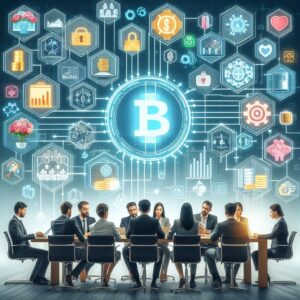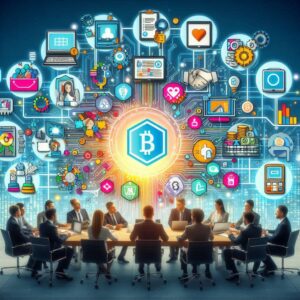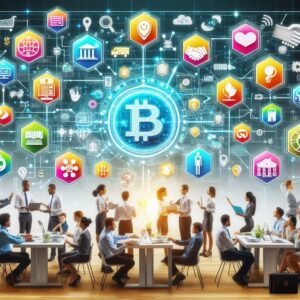Non-fungible tokens (NFTs) have come a long way since their initial explosion into mainstream culture in the early 2020s. Once seen primarily as speculative assets tied to digital art and collectibles, NFTs have evolved into a multifaceted technology with practical applications across various industries. While the hype of quick riches has faded, what remains is a maturing market driven by real utility, innovation, and mainstream adoption. In 2025, NFTs are no longer just about pixelated avatars but serve as critical tools in sectors like gaming, real estate, intellectual property, and digital identity.
The Maturation of the NFT Market
The NFT landscape of 2025 is drastically different from its early chaotic days. With regulatory frameworks solidifying in many jurisdictions, the industry has gained credibility and stability. Governments and financial institutions now recognize NFTs as a legitimate form of digital asset ownership, leading to better consumer protections and clearer tax guidelines. Moreover, blockchain networks have become more energy-efficient, addressing one of the major criticisms against early NFTs: their environmental impact. These advancements have encouraged wider adoption by companies and individuals who previously hesitated due to volatility and ethical concerns.
The speculative frenzy that characterized the early NFT market has subsided, and projects with real utility have risen to the forefront. Businesses now integrate NFTs into loyalty programs, supply chain management, and digital rights management. The market is no longer dominated by speculative buyers but by those who see NFTs as valuable tools for authentication, ownership, and engagement.
Practical Use Cases of NFTs in 2025
NFTs now extend far beyond digital art and collectibles. Their integration into various industries has unlocked significant benefits, including security, transparency, and efficiency.
1. Gaming and Virtual Assets
The gaming industry continues to be a leading force in NFT adoption. Unlike traditional games where digital assets are confined to a single ecosystem, NFTs enable true ownership of in-game items, allowing players to trade or transfer their assets across multiple platforms. This has led to the rise of interoperable gaming economies where players can use a single NFT item in different virtual environments. Game developers also benefit by monetizing digital assets without relying solely on traditional revenue models like in-game purchases and advertisements.
2. Real Estate and Digital Ownership
NFTs have revolutionized real estate by streamlining property transactions and ownership verification. Smart contracts eliminate the need for intermediaries, reducing costs and increasing transaction speed. Tokenizing real estate assets allows for fractional ownership, enabling individuals to invest in high-value properties with smaller amounts of capital. This has made real estate investment more accessible and liquid than ever before.
3. Intellectual Property and Digital Rights
The entertainment and content creation industries have greatly benefited from NFTs as a means of securing intellectual property rights. Artists, musicians, and writers can now tokenize their work, ensuring proper attribution and royalties through automated smart contracts. This prevents piracy and unauthorized use while ensuring that creators are fairly compensated. NFT-based licensing models are also becoming the norm, allowing companies to streamline digital content distribution.
4. Digital Identity and Authentication
NFTs are playing a crucial role in digital identity verification. Instead of relying on centralized databases prone to hacks, individuals can use NFT-based IDs that grant them access to online services, financial platforms, and even government institutions. These decentralized identity systems enhance security and user privacy, reducing the risks associated with traditional data breaches.
Challenges and Roadblocks
Despite the progress, the NFT ecosystem still faces several challenges. Scalability remains an issue as blockchain networks continue to struggle with high transaction fees and network congestion. While newer solutions like Layer 2 protocols and alternative blockchains have improved efficiency, the need for seamless and cost-effective transactions persists.
Regulatory uncertainty in certain regions also poses a challenge. While many countries have adopted clear frameworks, others remain hesitant to embrace NFTs due to concerns over fraud, money laundering, and tax evasion. Regulatory inconsistencies between jurisdictions create friction for businesses operating on a global scale.
Public perception is another hurdle. The NFT market was initially plagued by scams, overpriced assets, and speculative trading, leading many to dismiss it as a passing trend. Educating the general public on the real-world benefits of NFTs is crucial for broader acceptance and adoption.
The Future of NFTs Beyond 2025
Looking ahead, NFTs are poised to become a fundamental component of the digital economy. Their integration with artificial intelligence, the metaverse, and decentralized finance (DeFi) will unlock even more opportunities for innovation. As technology advances, new applications for NFTs will emerge, further solidifying their role in shaping digital ownership and online interactions.
Key trends expected to shape the NFT landscape beyond 2025:
- AI-generated NFTs: Intelligent NFTs that evolve based on user interactions or external data sources.
- Integration with IoT: NFTs used for tracking and verifying the ownership of physical assets.
- Mainstream financial adoption: Banks and institutions issuing NFT-based securities and investment products.
- Interoperable blockchain ecosystems: Enhanced cross-chain functionality allowing seamless transfer of NFTs across different networks.
- Improved sustainability: Continued development of eco-friendly blockchain solutions to minimize environmental impact.
NFTs in 2025 have moved beyond the initial hype, establishing themselves as powerful tools with real-world applications. Their influence spans industries, from gaming and real estate to intellectual property and identity verification. While challenges remain, ongoing technological advancements and regulatory clarity will continue to drive NFT adoption and integration into mainstream digital life. As the technology matures, NFTs will play a crucial role in defining the future of digital ownership, security, and decentralized economies.



